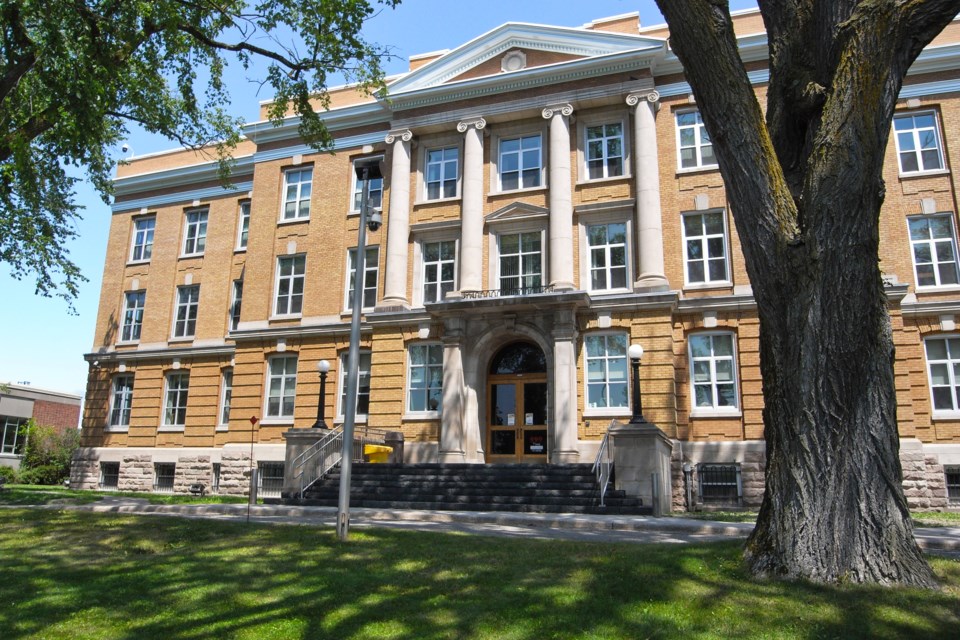Six years after Johnathan Townsend was imprisoned for life for killing a Quebec exotic dancer he had befriended, the province's highest court has upheld his first-degree murder conviction.
Townsend was 18 when he stabbed Corellie Bonhomme in the neck with a kitchen knife in his Lake Street apartment on Aug. 8, 2013.
A jury found him guilty of the offence nearly four years later on April 20, 2017 following a trial at the Sault Ste. Marie courthouse.
Superior Court Justice Michael Varpio sentenced him to life behind bars in a federal penitentiary with no chance of parole for 25 years.
During the trial, jurors viewed a video statement Townsend gave city police two days after the murder, where he admitted killing Bonhomme.
The Crown's evidence also included Skype chat logs of conversations with a young American girl that police found on his computer.
In online chats, weeks prior to the woman's death and on the night she was killed, Townsend talked about how much he hated "the stripper" and his plans to kill her.
On Tuesday, the Ontario Court of Appeal released a decision dismissing Townsend's appeal — a week after hearing legal arguments from the Crown and defence in Toronto.
The conviction appeal centered around the police search of Townsend's computer and Varpio's decision to permit the jury to hear this evidence.
It challenged the trial judge's ruling on a pre-trial Charter of Rights application, arguing he had erred in not excluding this evidence.
Townsend killed the 42-year-old woman, who had been staying with him, after he got into bed with her in the early morning hours of Aug. 8.
Her body was found in the bathtub several hours later, after he had left the apartment and called his mother, asking to be taken to the Sault Area Hospital.
Townsend's mother contacted his father, informing him their son wasn't doing well and was being admitted to the psychiatric ward.
On his way to the hospital, he decided to stop at the young man's apartment because Townsend had a history of causing damage when he was in a bad mental state.
He discovered the bloody crime scene and the victim's body in the bathtub of the ground-floor bachelor apartment at about 7:30 p.m. and called 911.
Townsend admitted stabbing Bonhomme following his arrest and was charged with second-degree murder.
The accused said he felt suicidal after learning she was going to move out the next day.
He had taken the knife to bed to kill himself if she didn't agree to stay.
Townsend said he became angry when she told him she didn't want to live with a rapist, and in a reflex action stabbed her with considerable force.
A search of his computer "provided evidence that, despite his claim, it was a planned and deliberate murder," the appeal court noted in its decision.
At trial, the defence had brought a motion to exclude the computer evidence on the grounds it violated Townsend's Charter right against unreasonable search and seizure.
Varpio concluded there was a breach, but deemed its impact was minor, and didn't exclude the evidence.
He found "the breach was not particularly serious and its impact, on the circumstances of this case, was quite limited," the higher court said.
"On the other hand, society's need to adjudicate (the merits) is exceptionally high."
The information on the computer was the sole evidence capable of supporting a first-degree murder conviction and Varpio found it to be both probative and reliable.
It was "important in demonstrating beyond a reasonable doubt the murder was planned and deliberate," the three-member appeal court said.
"In our view, the appellant has not established any error in the trial judge's analysis," it decided. "We conclude there is no basis for intervention by this court.”
When police had interviewed Townsend's mother, she told them her son had left several bags, including one with a computer, in her car when she drove him to the hospital.
She gave the officers consent, on video, to seize them.
After obtaining a warrant, a detective searched and analyzed the contents of his computer.
He conducted two types of searches on Aug. 22 and 23: a photo /video search and a keyword search of internet-based communications stored on a hard drive.
Townsend's communications "made it clear he intended and planned on killing the victim, either by poisoning or stabbing," the appeal court said in its decision.
His internet history suggested he was planning on committing murder, and the charge was upgraded to first-degree murder.
